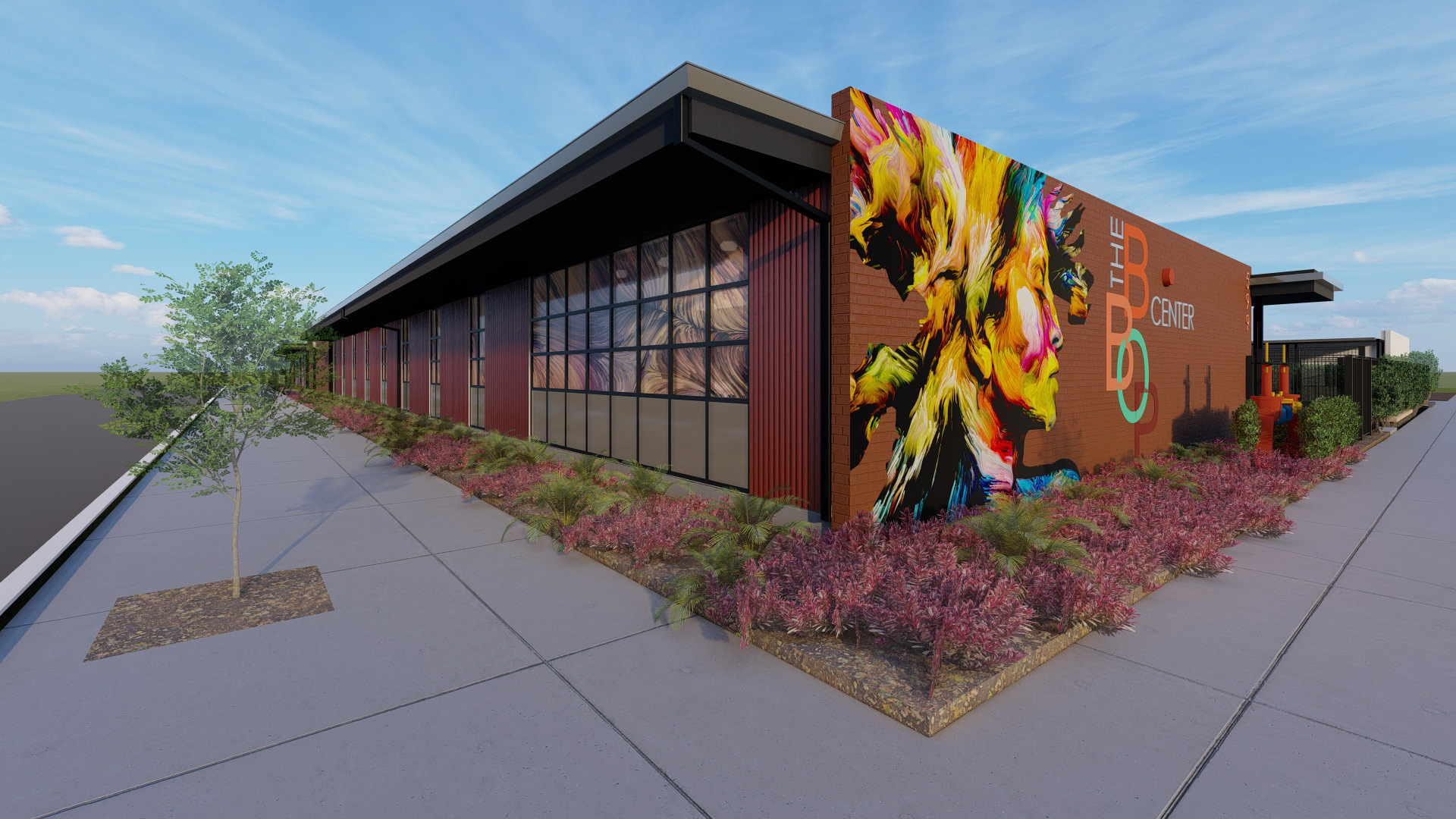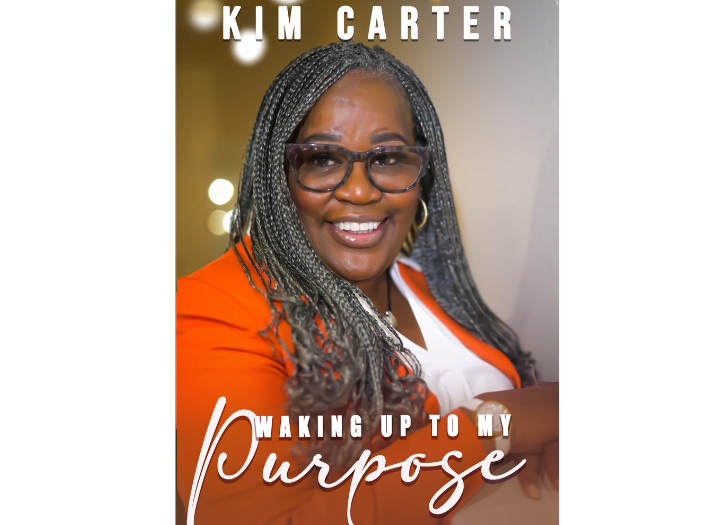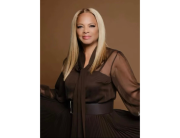
President & CEO of the Center for Housing Advancement and Motivational Projects (CHAMP) and the founder and Ambassador of the Time for Change Foundation Kim Carter, building her empire inspiring and empowering people around the world with her story. Kim’s story was included in the Italian film “Tell it Like a Woman,” which was created to draw attention to issues combating gender-based violence and women’s empowerment. Kim’s segment was produced by Taraji P. Henson, with Jennifer Hudson playing the role of Kim. Carter also was recognized by CNN as a CNN Hero.
Carter wears many hats which includes an Affordable Housing Developer, Strategic Planner, Innovator, Motivational Speaker, and Author. We caught up with Carter, to discuss her journey helping and being the change she wants to see assisting homeless women and children in achieving self-sufficiency by providing housing and necessary supportive services through evidence-based programs, housing, and trauma-informed approaches to address their needs.
We salute Carter’s hard work and determination and are delighted to share Kim’s journey in this SHEEN exclusive interview below.
Tell us more about the BBOP?
The BBOP (Black and Brown Opportunity for Profit) Center directly responded to the historic systemic inequities that black and brown women face in accessing capital and access to the resources and technology information needed to build, grow, scale, and scale investable businesses. After the pandemic, it became clear that those that were hit the hardest, during the pandemic were Black and brown women and that the recovery rate from the loss of wages, the loss of education, the loss of your children’s time in school, the social effect of being isolated, was going to have a deep and a significant financial impact in their lives. And it could take a couple of generations to recover from that. So given the fact that we still are suffering from inequality across the board here in America, it became time to create a system in place a system that actually works for Black and brown women so that we can begin to build generational wealth and a place that’s welcoming and designed to uplift and support these women. And so therein lies the BBOP. It started as an idea that we could make come to fruition with our grand opening. The BBOP is 10,000 square feet of space with 14 offices, three conference rooms, a huge cafeteria, and a childcare center made specifically for these women. So I’m excited about that.

What made me get into housing?
I’m a formerly incarcerated black woman, a victim of the War on Drugs who cycled in and out of prison until, finally, one program stuck. So, I’m standing here before you today, 30 years clean and sober. And how did I get to that recovery? I got to that recovery because I had support; the number one support I had was a safe place to call home. And so when I started the Time for Change Foundation in 2002, the priority of the foundation was creating a safe place for women to come home to in that light, right and recognizing the need for affordable housing for women who are making under the area median income. So, I wanted to create something beautiful where they could have a safe place to call home. And that’s how I got into community development. That’s how I became an affordable housing developer. And that’s how I developed Phoenix Square in 2012, an apartment building for women and their children. So that’s how I got into that.
As a founder and innovator, and CEO, what I do in my spare time is spend quality time with my loved ones. I love the water. I love swimming; I love being on boats; I love traveling. And so now, at this stage of my life, I’ve learned how to do the work balance thing because I’m in the golden years. At first, it was not an option because I worked all day every day. And that was just how driven I was to create programs and services and housing opportunities for women, particularly women who have their children caught up in the foster care system. As you may know, Time for Change Foundation has helped reunite 320 children from foster care back with their moms.
What are you most proud of accomplishing? And your career so far?
My proudest accomplishment is that I can help develop other women and empower them to walk into their greatness. I get to see a manifestation of, you know, the courage it takes to step out on faith and live your best life. I get to see that replicated in women all the time, and one of my most significant accomplishments is that I’ve been able to help women. I can see the trajectory of that.
What inspired your book title waking up to my purpose? Was the book from your personal experiences?
Absolutely. Waking up To My Purpose is a memoir that shares the inside and out of the life of Kim Carter. It helps women to understand that no matter how badly mangled you may have been or how bad the situation may have been, there’s always a comeback and a comeback and be strong. And instead of always being caught a victim, we are overcomers. We are not more survivors; we are triumphant. And I want women to know that there is still more we can do despite what happened on our paths. So waking up to my purpose was like a wake-up call to women across the world that these experiences were all a part of building who we are today. And today, we are great. And we are enough.
What has been one of the biggest challenges in your career so far, and how to overcome it?
One of the biggest challenges in my career has been navigating these external services like insurance. Oh, one of the things about the insurance company that I’ve found to be true in my case is that we pay for insurance to not use it, then when something happens, you need to use it; there is a lot of bureaucracy when using it. However, you have been paying for years for something you’ve never benefited from. I’m still trying to understand that one. I spend a lot of time ensuring that our organization’s assets are adequately insured, that the fine print is read, and that we can reap benefits if something happens. So no, I do understand that you pay for insurance, and you can feel comfortable. But we had a break-in before, and one of our vans had a traffic accident, and I didn’t appreciate the rocks you had to go through to get the coverage that was paid for years and never utilized. I became more diligent in understanding insurance, the fine print, and what is needed.
What is the most rewarding thing about your job?
I’m at such a good place in my life right now that I get to work on things that make me feel good and are very impactful. I’m very strategic with my time because I am doing that work-life balance; I ensure I’m only working on things that will have significant impacts. So the best thing about the life that I’m living is that it’s not dictated by a nine-to-five, although I will go to work and work 24/7, I mean go to work. I am going to work on a project on goodwill because I am the ambassador of the Time for Change Foundation and President and CEO of the Center for Housing Advancement and Motivation, new projects.
What can we look forward to seeing from you any upcoming projects?
I am so glad you asked about our upcoming projects, as we’re getting ready to work on this. We have a restaurant, and we’re getting ready to redesign the restaurant to what we’re going to call “Three Smooth Choices,” there will be smoothie drinks in the front, the choice in the middle will be our training kitchen, and the third part of it is the ghost kitchen. So being able to have that is going to be very advantageous. And we’re looking forward to the three more choices coming up here sometime in 2024.
Photo Credits: Courtesy of Kim Carter









Add Comment
You must be logged in to post a comment.